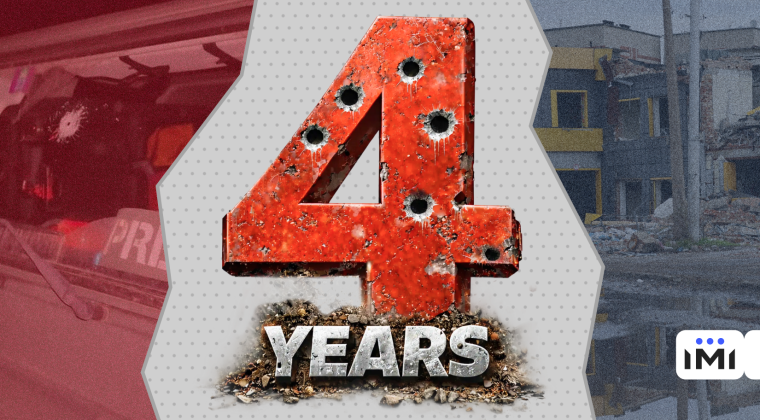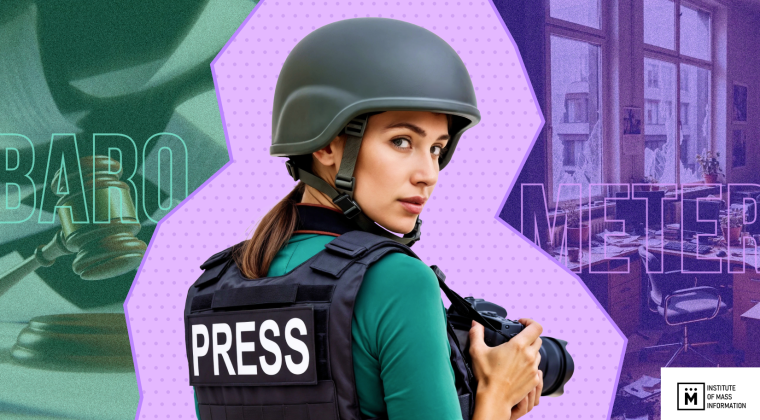2025 started off busy in the Institute of Mass Information (IMI) Mediabazas. In January, the network organized 13 training classes for journalists, with the subjects including monetization, AI, SEO, personal safety, and access to information. Students of the Media School 2.0 by the Mediabaza Kropyvnytskyi started their paid internships in local media outlets. A new IMI Mediabaza opened in Khmelnytskyi. Mediabaza Cherkasy received a stock of safety gear and Mediabaza Mykolaiv hosted a visit by the Ambassador of France. Journalists not only studied, but also received protective equipment (body armor, helmets, and first-aid kits), took part in surveys and networking events.
Read more about the ways the IMI’s Mediabazas are helping Ukrainian media workers work in wartime.
Official opening of Mediabaza Khmelnytskyi, first aid kits for Mediabaza Cherkasy
The year started off well: an IMI Mediabaza officially opened in Khmelnytskyi. Now media professionals can use the venue as a co-working space, attend offline training classes, and borrow safety gear.
“We have been operating for nearly two months now, and now were finally able to invite everyone to our space. You can work here. We have power equipment in the event of blackouts. We have stable internet connection. We can also provide safety gear if needed. These are helmets, plate carriers, and first aid kits. We are here to hear out media professionals and create a powerful community,” said Mediabaza Khmelnytskyi coordinator Olha Zahoruyko.
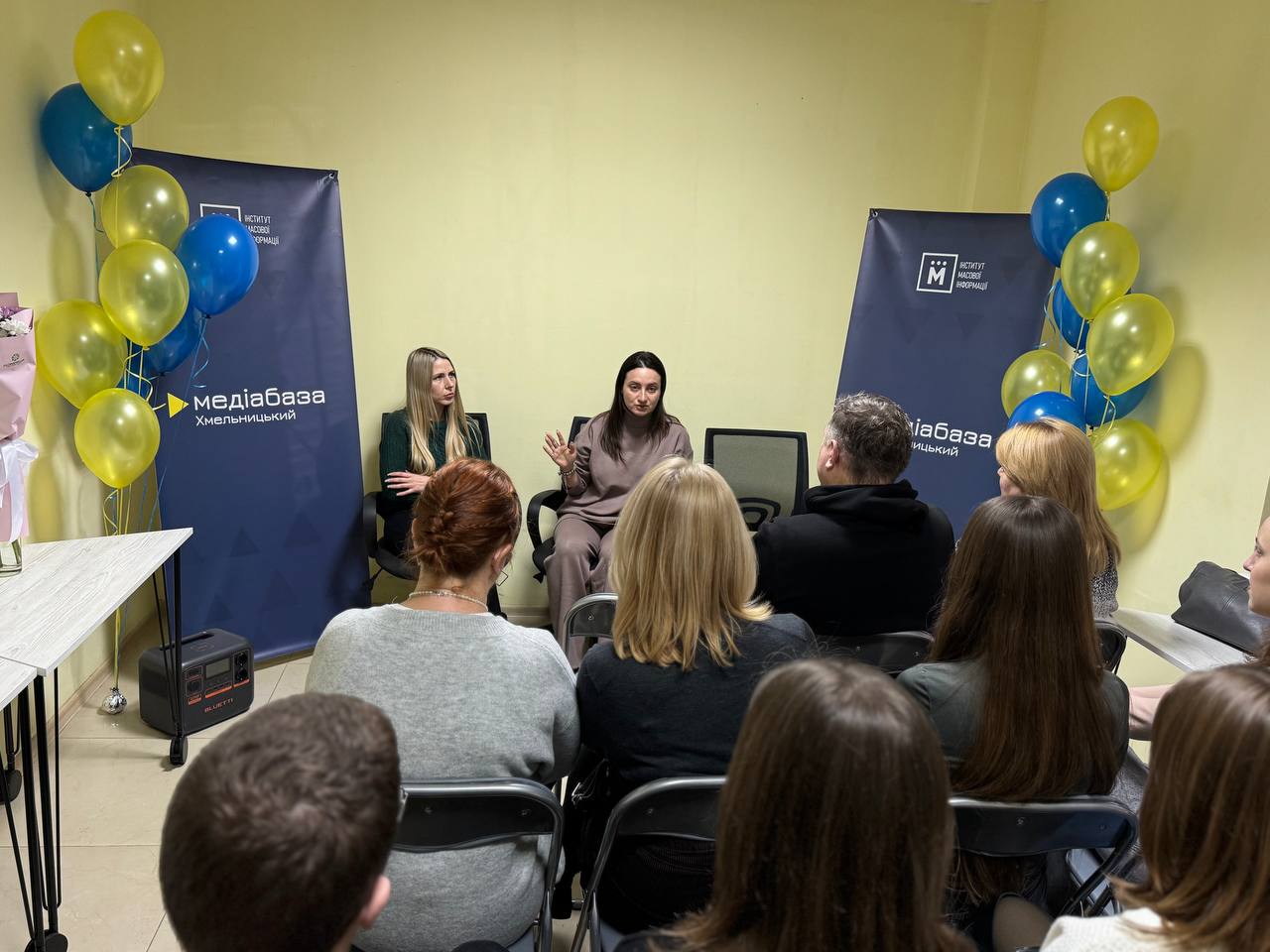
Olha Zahoruyko and Alyona Bereza at the opening of Mediabaza Khmelnytskyi, January 10, 2025. Photo by Maria Turchyna
Alla Humeniuk, editor of the printed newspaper Vpered, said that the team needed to expand their knowledge and hoped to get it at the Mediabaza.
“It is wonderful to have such a space. There is a need for training not only for students who will later become journalists, but also for those who have been working in the field for a very long time. We are a district-level printed media outlet, and today we are faced with the need to completely reshape our work in order to preserve the newspaper. We need a lot of new knowledge, and now we will be able to contact the Mediabaza with our requests,” noted Vpered editor Alla Humeniuk.
Meanwhile, colleagues from the IMI’s Kyiv office visited the newly opened Mediabaza Cherkasy, bringing first aid kits and tourniquets. Now journalists can borrow personal safety equipment for reporting trips.
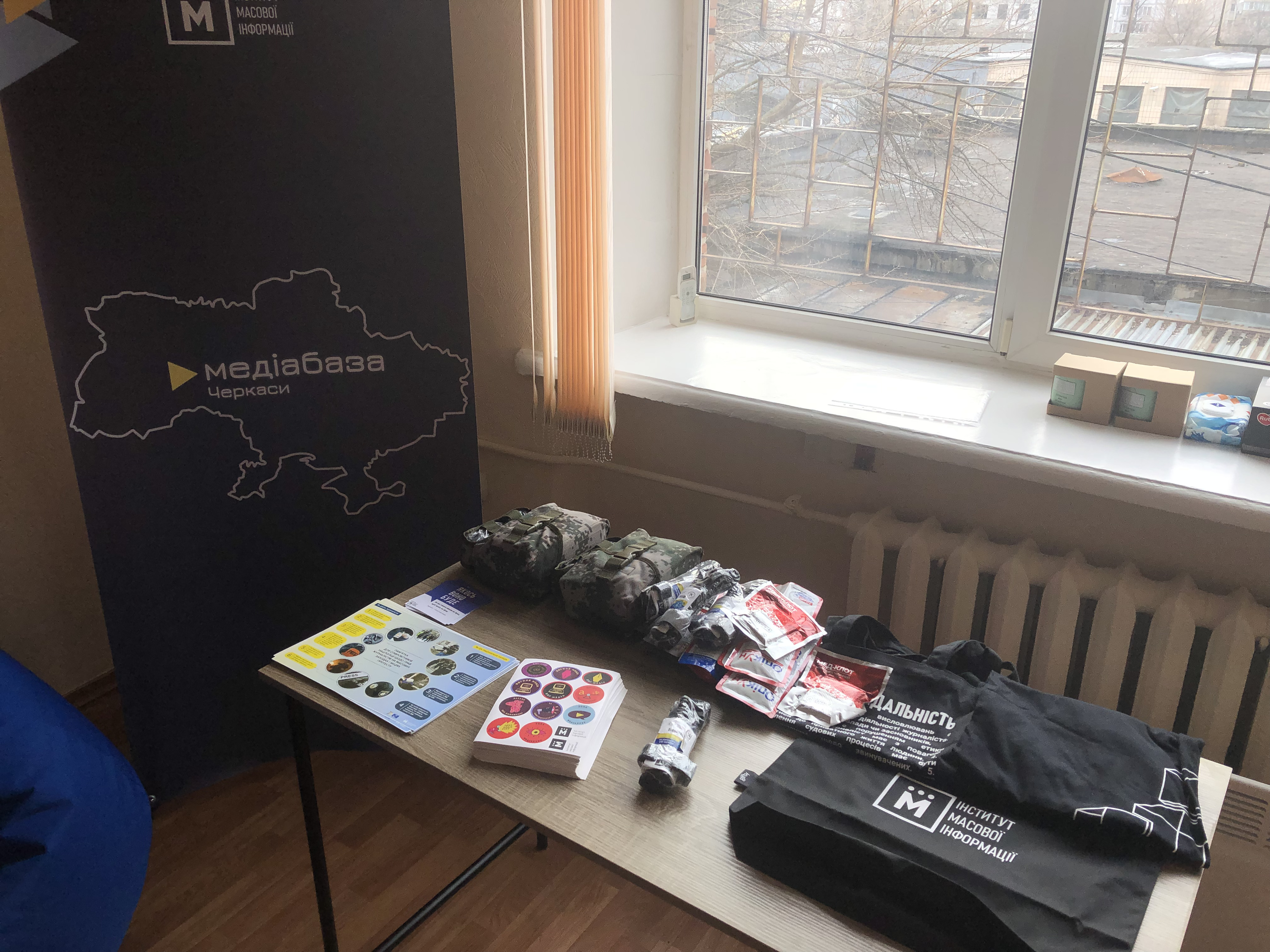
Mediabaza Cherkasy received first aid kits, CAT tourniquets, hemostatic bandages from the IMI. Photo by Kateryna Andriychuk
New studying stage for Media School 2.0. participants
Media School 2.0 is a Mediabaza Kropyvnytskyi project that allows students to build practical skills for working in the media. Throughout the past several months the participants had attended lectures by professionals: editors and journalists currently working in the industry. Now they are on to the next module: paid internships at Kirovohrad oblast media outlets.
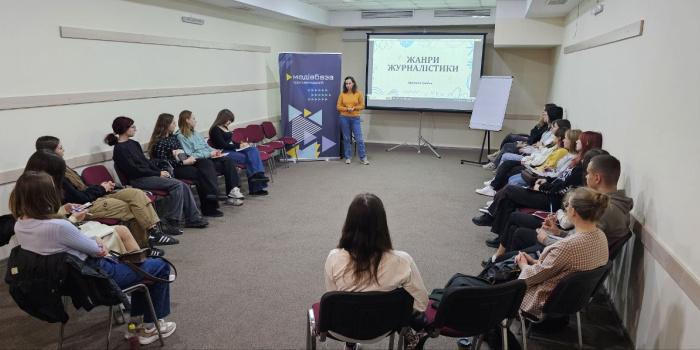
Participants in the project Media School 2.0, launched by the IMI journalism hub Mediabaza Kropyvnytskyi in October. Photo by Mediabaza Kropyvnytskyi
Here is what the participants are saying about the experience. “A few weeks have passed since the end of the course. And I am collecting information for my first article in the newspaper. During this time, I was allowed into a closed museum, I flipped through 19th century archives and talked to people I would never have met otherwise. Is this interesting? Incredibly fascinating! The biggest lesson learned during this time: don’t go to the archive without a mask if you’re working with old material. And don’t go to the editorial office in heels. Because for some reason everywhere has stairs that could kill you (laughs),” says Liya Ivanovska, a participant in the program.
“I am doing an internship at the news portal Hrechka. The editors are great, they help me with everything. Today I wrote for the permanent column Top 10 Films About the War, tomorrow I will go to do a social survey. I am grateful for this opportunity”, says Diana Bondarenko, a student of the Vynnychenko State University of Central Ukraine, about the behind the scenes of the internship.

Diana Bondarenko in the office of the news portal Hrechka. Photos by Mediabaza Kropyvnytskyi
Working with information queries and open data
The IMI recorded 18 instances of access to public information being restricted in 2024, so this issue remains topical and is represented in Mediabaza training as well. In January, Mediabaza Khmelnytskyi hosted classes on working with open data, while Mediabaza Chernihiv discussed applying the threefold test to information queries.
For open data to be processable, they must be in RDF, XML, JSON or CSV format and meet the following criteria:
- Each file (resource) in the set must consist of one table.
- Each row of the table must only have one record.
- Each column must contain values of only one type.
- Usually each cell must have one value.
- The table must not contain any additional elements.
Open data sets can be accessed on the unified open data portal, on the data administrator’s website, via an official query or using the application programming interface (API).
Sharing and publishing open data sets could be made easier with adherence to the threefold test. Media lawyer Oleksandr Burmahin explained how this test is applied when providing public information during the training class “Defending freedom of speech and the rights of media workers in wartime.”

Oleksandr Burmahin, media lawyer. Photo by Svitlana Bilous
Burmahin explained that many officials decline journalists’ information queries citing martial law being in effect in the country. However, this is unlawful if the information is not classified. He added that a government body must refer to the threefold test before refusing to share information with a journalist. Overall, classified information can be categorized as secret, official, or confidential. If such information is requested, officials must clearly explain in their response why the information query regards a particular type of classified information. Here are some more tips that can help a journalist get a positive response:
- address the query to a legal entity (city military administration, city council, etc.) and not to a person (mayor, head of the military administration, etc.);
- overly detailed queries and queries with many questions give officials “room for maneuver”, so the information query should be well-structured and contain no more than three questions;
- it is advisable to request specific documents rather than describe the information in your query (a session’s decisions on allocating land plots with annexes, financial and accounting reports of government bodies, staff lists, etc.).
Monetizing your media outlet: advice by NGO Maye Sens CEO
59.2% of media professionals surveyed by the IMI believe that the suspension of US support programs for the media could have catastrophic impact and lead to the closure or significant downsizing of many independent media outlets. Maye Sens CEO Valeriy Harmash shared his advice on ways to monetize a media outlet in Mediabaza Chernivtsi.
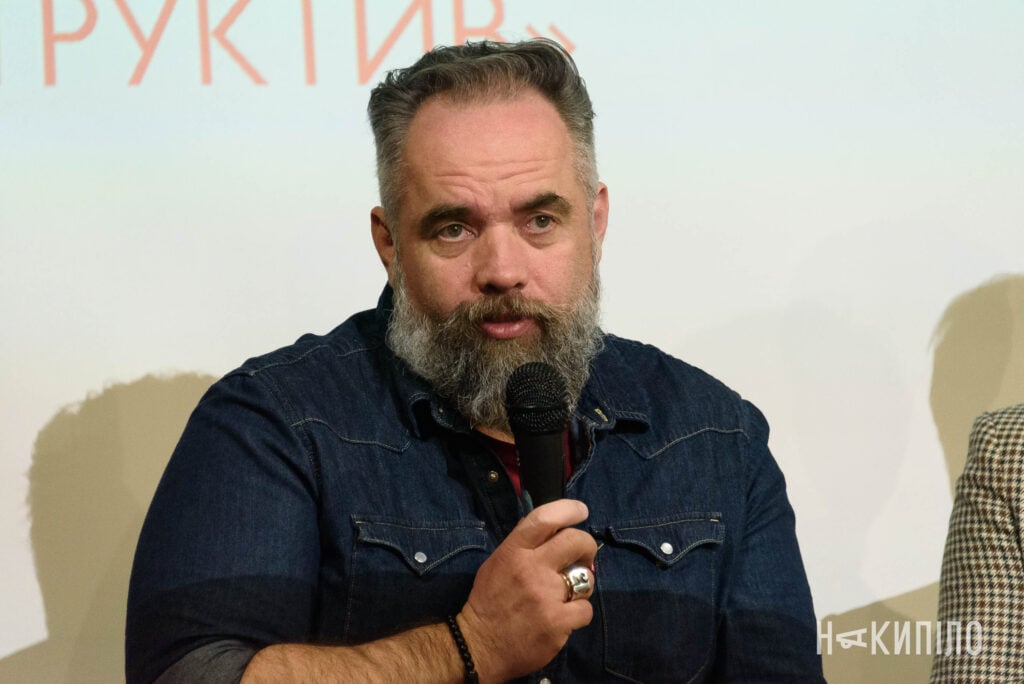
Valeriy Harmash. Photo by Nakypilo
Banner and native advertising remain important. “Banner advertising is not going anywhere, it will be popular. It provides easy leads, being the cheapest way to advertise your work or organization,” says Valeriy Harmash.
Due to Covid and the full-scale invasion, people feel a need for offline meetings. Events will affect monetization if a media outlet organizes interesting meetings. Teams should also look into the freemium model: some content is available for free, while premium content is provided only to subscribers.
Visit by the French Ambassador and the EIB Ukraine Representative
And to finish off: some guests of interest. Gaël Veyssiere, France’s Ambassador to Ukraine, and Kristina Mikulova, Head of the Regional Hub for Eastern Europe at the European Investment Bank, visited Mediabaza Mykolaiv on January 20 as part of their Mykolaiv tour.
They discussed the French Embassy – EIB – Mykolaiv cooperation with journalists from Suspilne Mykolaiv and the local online news outlet MykVisti; namely, the issue of restoring drinking water supply to the city, as well as the social infrastructure and housing damaged by the war.

French Ambassador to Ukraine Gaël Veyssiere at the meeting at Mediabaza Mykolaiv on January 20, 2025. Photo by Yulia Boychenko
“Speaking of media freedom, the need for pluralism, this was and remains at the heart of the work we have done. And, by the way, this is one of the central elements on Ukraine’s path to the European Union. As you know, the talks have started; as you know, for any EU candidate, the first issue that arises is the rule of law, the fundamental rights and freedoms. And what unites us is overcoming needs together and the inviolability of these fundamental freedoms,” said Gaël Veyssiere.
In turn, Kristina Mikulova, the Head of the Regional Hub for Eastern Europe at the European Investment Bank, said that what matters to her is not just the political component of the visit, but also that the people in the region feel the help, which is why they initiated the discussion with the media.
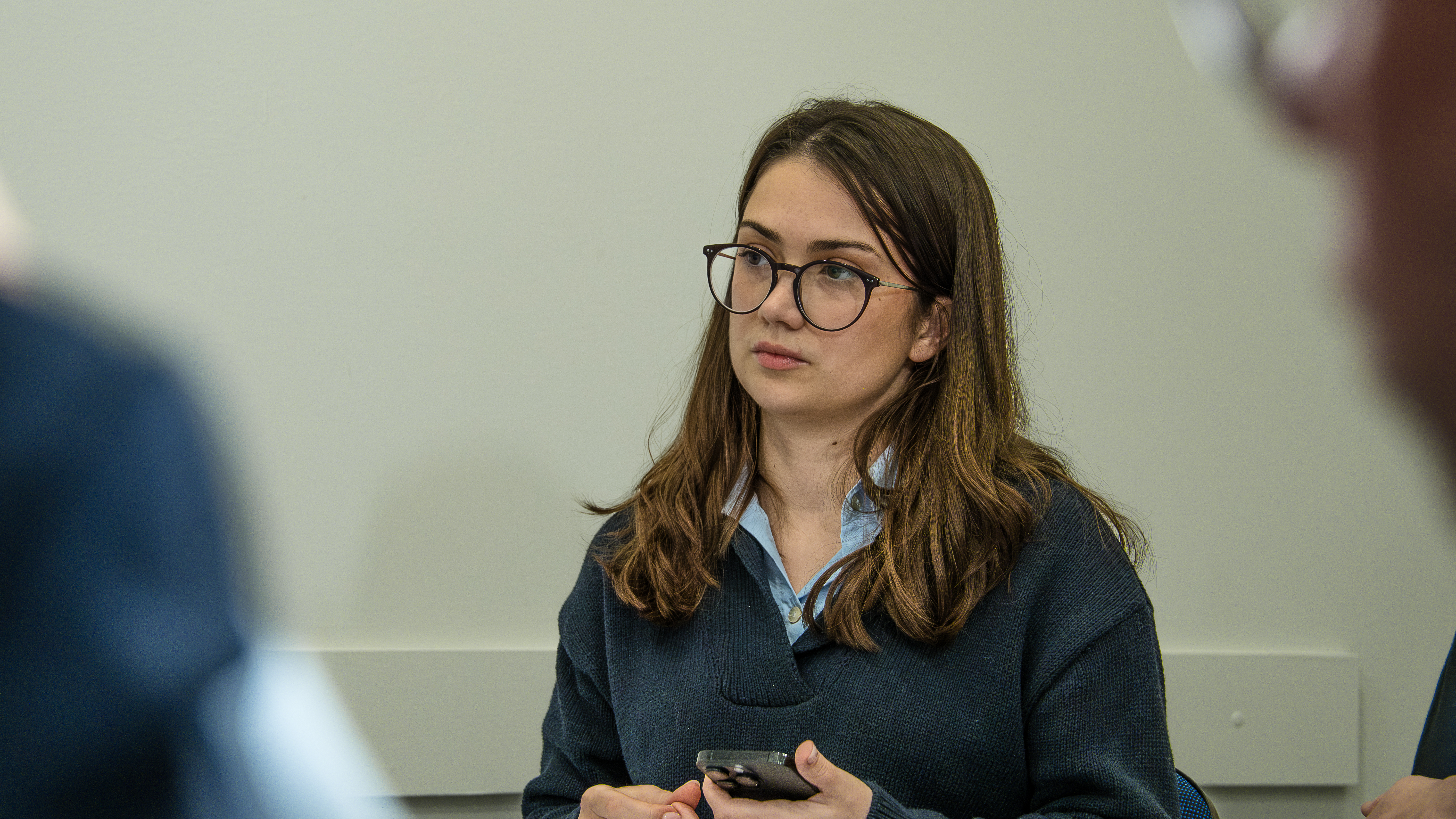
Kateryna Sereda, the Institute of Mass Information representative in Mykolaiv oblast. Photo by Yulia Boychenko
In January 2025 the Mediabazas hosted a total of 13 events with 426 participants. Media professionals actively used the spaces as co-working venues: they came to work there 110 times during the month. Journalists used the protective or technical equipment borrowing service eight times.
How to visit the IMI Mediabazas
To use a Mediabaza’s services, message the hub’s coordinator on Facebook:
- Mediabaza Khmelnytskyi – Olha Zahoruiko;
- Mediabaza Cherkasy– Yeliena Shchepak;
- Mediabaza Zhytomyr – Oksana Trokoz;
- Mediabaza Chernihiv – Pavlo Pushchenko;
- Mediabaza Kharkiv – Olha Kaplun;
- Mediabaza Poltava – Nadia Kucher;
- Mediabaza Dnipro – Kateryna Lysiuk;
- Mediabaza Zaporizhzhia – Natalia Vyhovska;
- Mediabaza Kropyvnytskyi – Pavlo Lisnychenko;
- Mediabaza Mykolaiv – Kateryna Sereda;
- Mediabaza Sumy – Alyona Yatsyna;
- Mediabaza Odesa, Kherson – Serhiy Nikitenko;
- Mediabaza Slovyansk – Valeriy Harmash;
- Mediabaza Chernivtsi – Taisia Harmash.
Please note that:
- in Kherson, the Mediabaza only issues equipment;
- in Slovyansk, you can use the Mediabaza equipment to film and broadcast video and audio materials;
- in Chernivtsi, you can record podcasts at the Mediabaza.
If necessary, you can contact the national Mediabaza coordinator Pavlo Lisnychenko by:
- calling 050 594 20 58
- or writing to [email protected].
If you need safety gear (bulletproof vest, helmet, first aid kit) or some other equipment, contact the coordinator in your region or fill in this Google form.
by Kateryna Andriychuk, Mediabaza network communications manager

